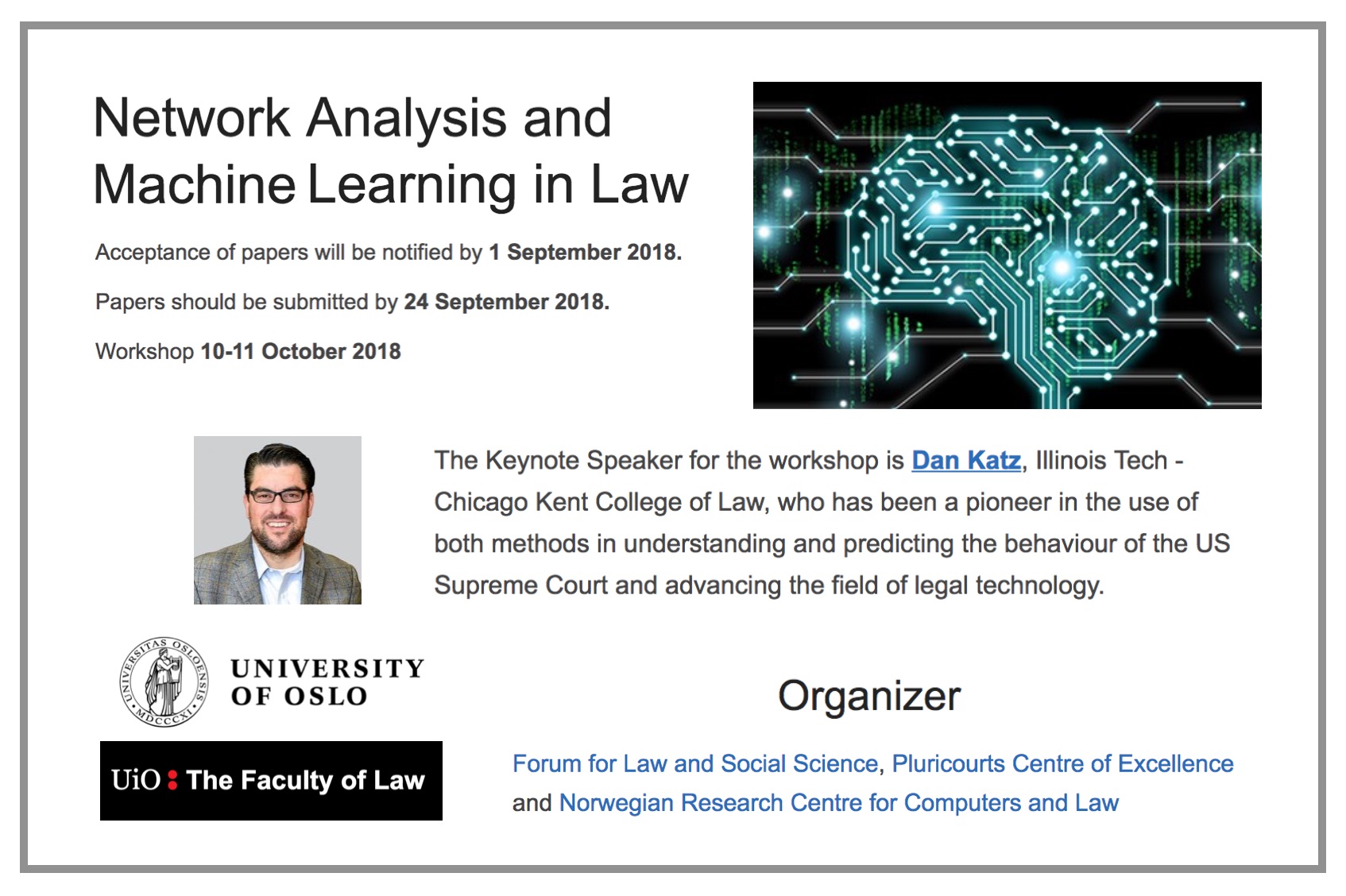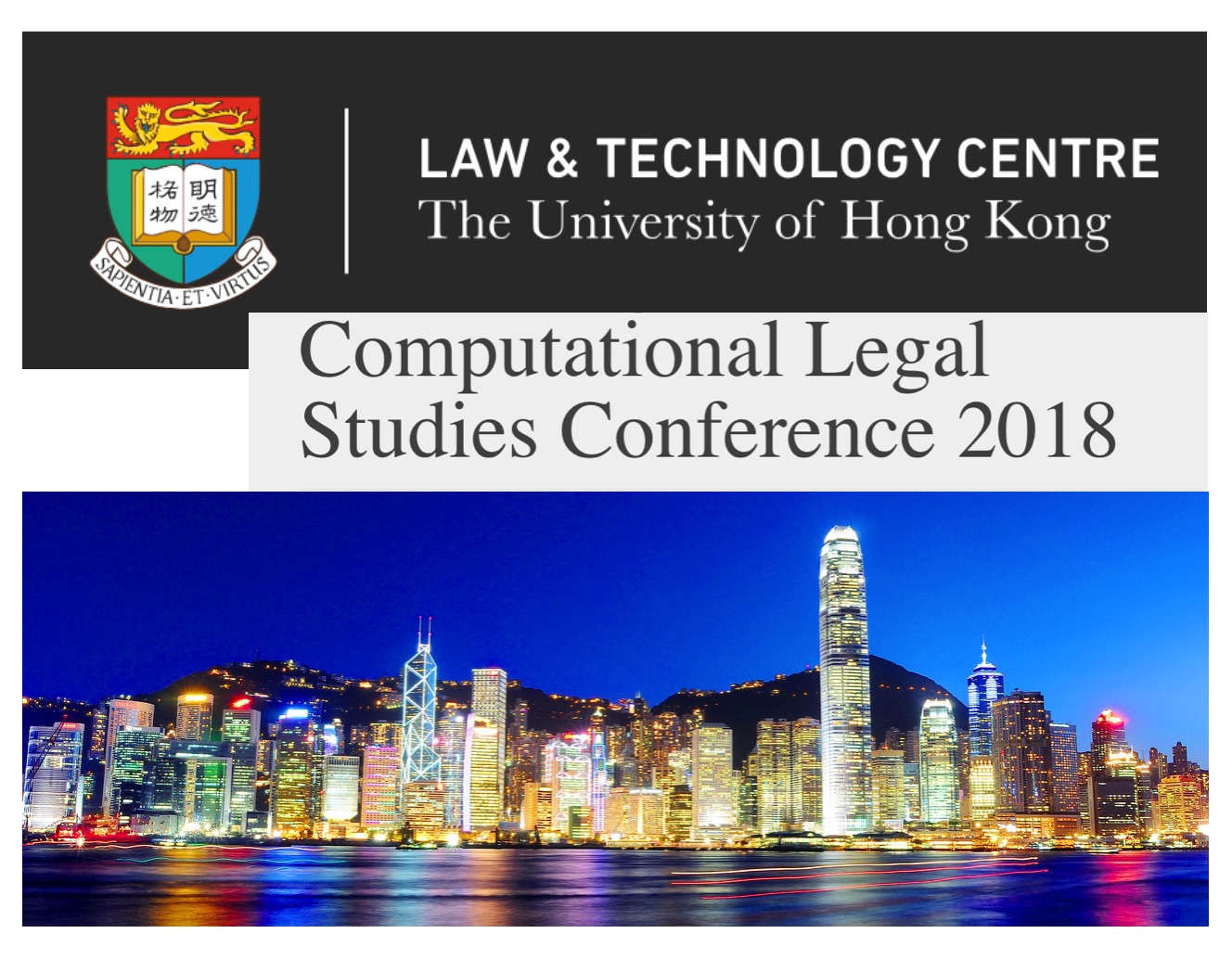 Today is the Computational Legal Studies Conference here at University of Hong Kong – a global gathering which seemed impossible when Mike Bommarito and I started our Comp Law Blog nearly 10 years ago …
Today is the Computational Legal Studies Conference here at University of Hong Kong – a global gathering which seemed impossible when Mike Bommarito and I started our Comp Law Blog nearly 10 years ago …
Month: June 2018
2018 RSG Financial Times Innovative Lawyers Conference in London
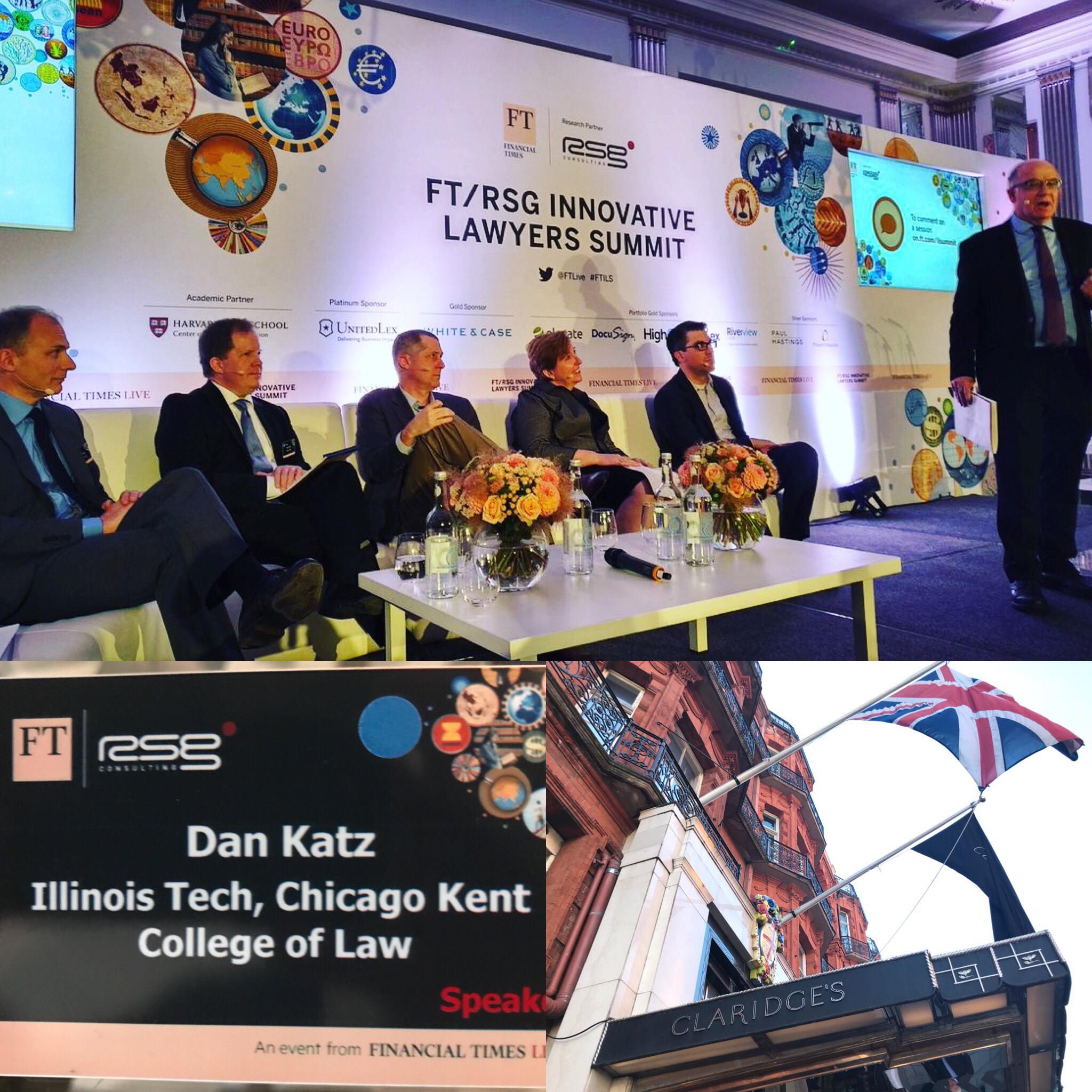
It was a great pleasure to participate in the 2018 RSG Financial Times Innovative Lawyers Conference in London !
Network Analysis and Machine Learning in Law Conference – University of Oslo Faculty of Law – Call for Papers
Call For Papers: “The empirical turn in legal scholarship has intensified with the integration of a new quantitative and computational methods. In our second annual workshop on law and social science methods, we call for papers on two increasingly popular approaches: network science and machine learning. We are especially interested in papers that seek to deepen the understanding of these methods or apply them to doctrinal or interdisciplinary questions in areas such as criminology, international law, corporate Law and sustainable development.
The Keynote Speaker for the workshop is Dan Katz, Illinois Tech – Chicago Kent College of Law, who has been a pioneer in the use of both methods in understanding and predicting the behavior of the US Supreme Court and advancing the field of legal technology”
Abstracts of approximately 200 words should be submitted to Martin Nøkleberg and Hanna Ahlström by 22 August 2018.
Acceptance of papers will be notified by 1 September 2018.
Papers should be submitted by 24 September 2018.
Workshop 10-11 October 2018 at the University of Olso
OpenEDGAR: Open Source Software for SEC EDGAR Analysis (Michael Bommarito, Daniel Martin Katz & Eric Detterman)
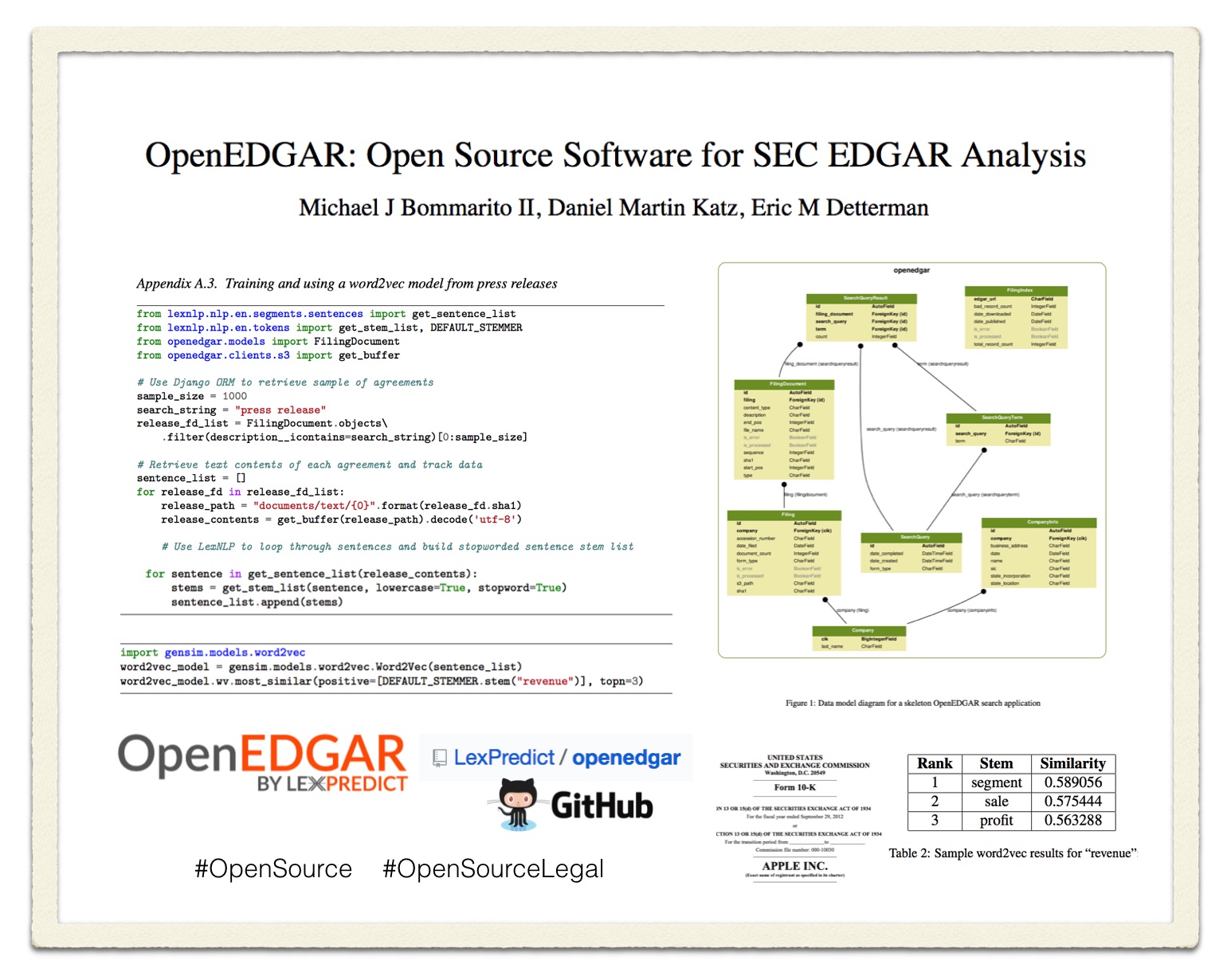 Our next paper — OpenEDGAR – Open Source Software for SEC Edgar Analysis is now available. This paper explores a range of #OpenSource tools we have developed to explore the EDGAR system operated by the US Securities and Exchange Commission (SEC). While a range of more sophisticated extraction and clause classification protocols can be developed leveraging LexNLP and other open and closed source tools, we provide some very simple code examples as an illustrative starting point.
Our next paper — OpenEDGAR – Open Source Software for SEC Edgar Analysis is now available. This paper explores a range of #OpenSource tools we have developed to explore the EDGAR system operated by the US Securities and Exchange Commission (SEC). While a range of more sophisticated extraction and clause classification protocols can be developed leveraging LexNLP and other open and closed source tools, we provide some very simple code examples as an illustrative starting point.
Click here for Paper: < SSRN > < arXiv >
Access Codebase Here: < Github >
Abstract: OpenEDGAR is an open source Python framework designed to rapidly construct research databases based on the Electronic Data Gathering, Analysis, and Retrieval (EDGAR) system operated by the US Securities and Exchange Commission (SEC). OpenEDGAR is built on the Django application framework, supports distributed compute across one or more servers, and includes functionality to (i) retrieve and parse index and filing data from EDGAR, (ii) build tables for key metadata like form type and filer, (iii) retrieve, parse, and update CIK to ticker and industry mappings, (iv) extract content and metadata from filing documents, and (v) search filing document contents. OpenEDGAR is designed for use in both academic research and industrial applications, and is distributed under MIT License at https://github.com/LexPredict/openedgar
The Block (Legal) Tech Conference – August 9, 2018 — @Illinois Tech – Chicago Kent College of Law
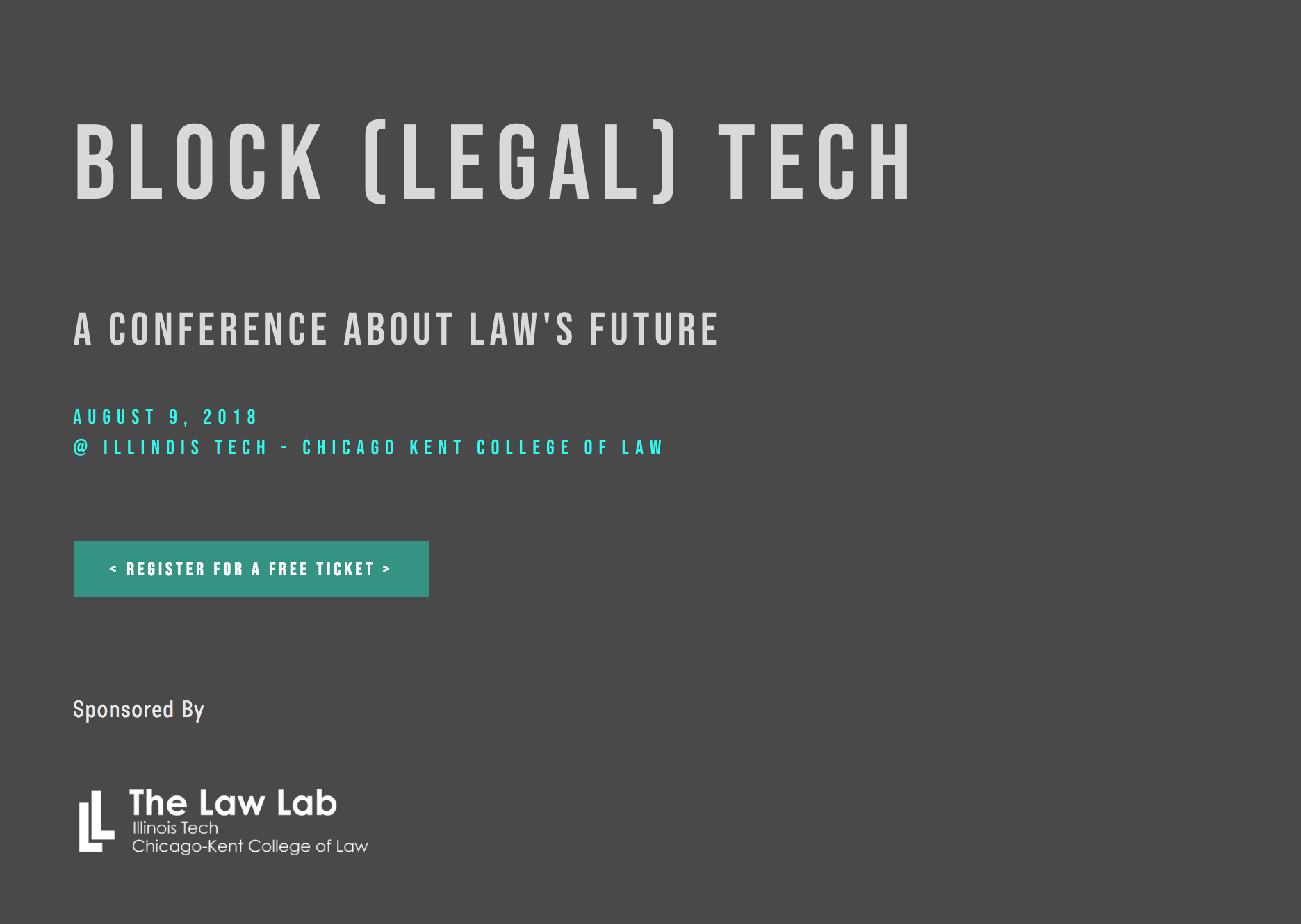
Save the DATE ! August 9, 2018 – we will be hosting the BLOCK (Legal) Tech Conference @ Illinois Tech – Chicago Kent College of Law.
Tickets are FREE but registration is required — – http://blocklegaltech.com/
#BlockChain #CryptoInfrastructure #FinTech #LegalTech #ICO
LexNLP: Natural Language Processing and Information Extraction For Legal and Regulatory Texts (Bommarito, Katz, Detterman)
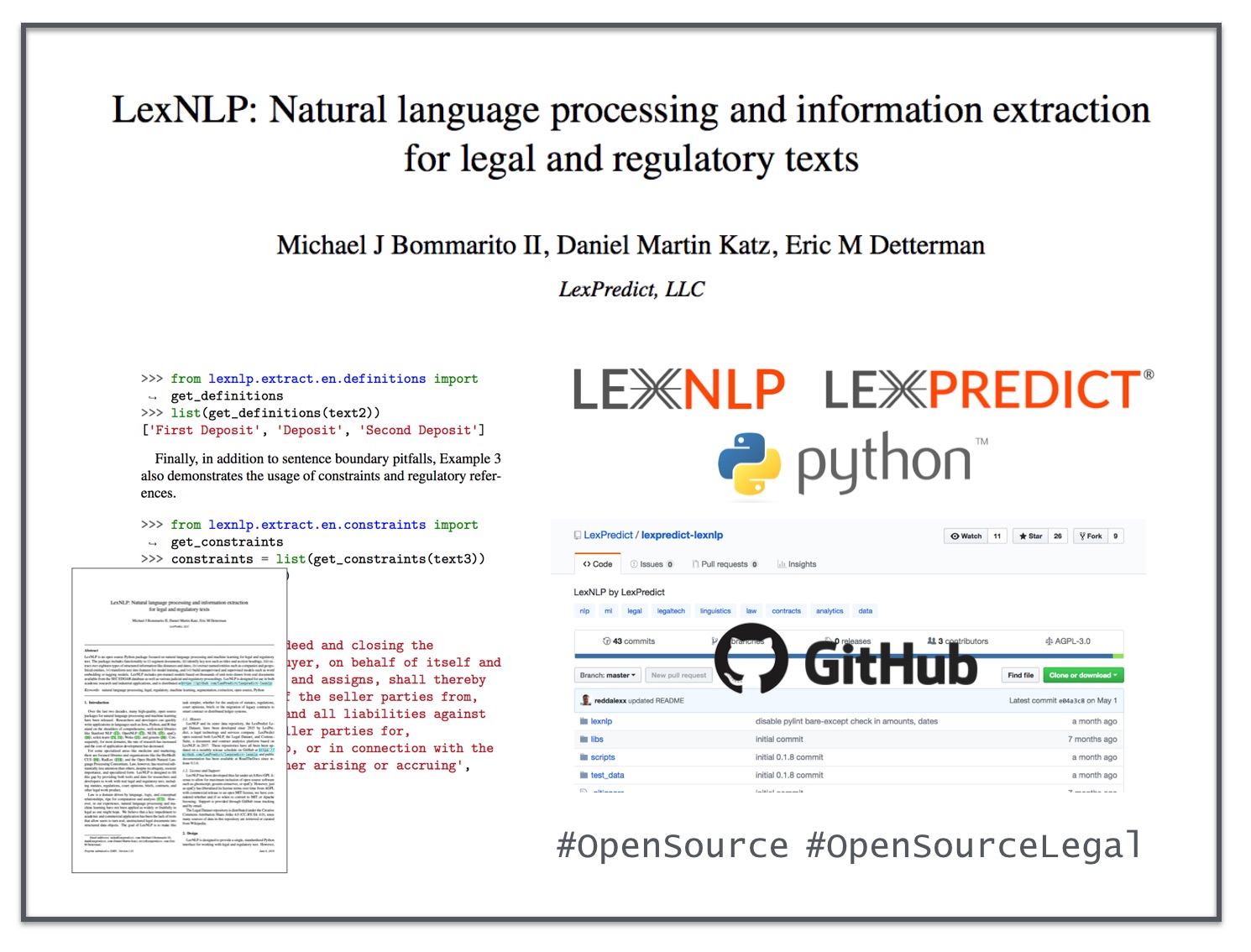 Paper Abstract – LexNLP is an open source Python package focused on natural language processing and machine learning for legal and regulatory text. The package includes functionality to (i) segment documents, (ii) identify key text such as titles and section headings, (iii) extract over eighteen types of structured information like distances and dates, (iv) extract named entities such as companies and geopolitical entities, (v) transform text into features for model training, and (vi) build unsupervised and supervised models such as word embedding or tagging models. LexNLP includes pre-trained models based on thousands of unit tests drawn from real documents available from the SEC EDGAR database as well as various judicial and regulatory proceedings. LexNLP is designed for use in both academic research and industrial applications, and is distributed at https://github.com/LexPredict/lexpredict-lexnlp
Paper Abstract – LexNLP is an open source Python package focused on natural language processing and machine learning for legal and regulatory text. The package includes functionality to (i) segment documents, (ii) identify key text such as titles and section headings, (iii) extract over eighteen types of structured information like distances and dates, (iv) extract named entities such as companies and geopolitical entities, (v) transform text into features for model training, and (vi) build unsupervised and supervised models such as word embedding or tagging models. LexNLP includes pre-trained models based on thousands of unit tests drawn from real documents available from the SEC EDGAR database as well as various judicial and regulatory proceedings. LexNLP is designed for use in both academic research and industrial applications, and is distributed at https://github.com/LexPredict/lexpredict-lexnlp

